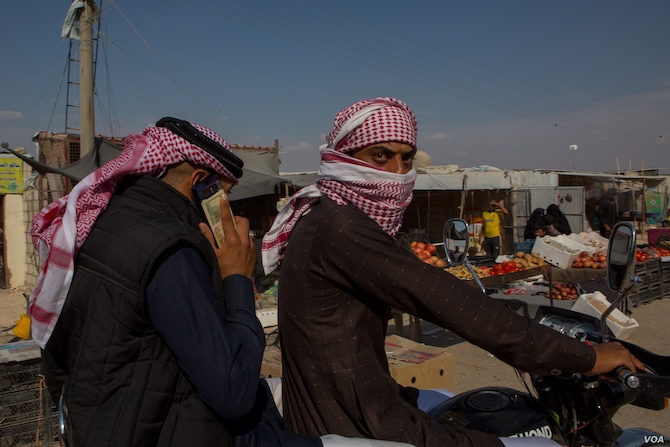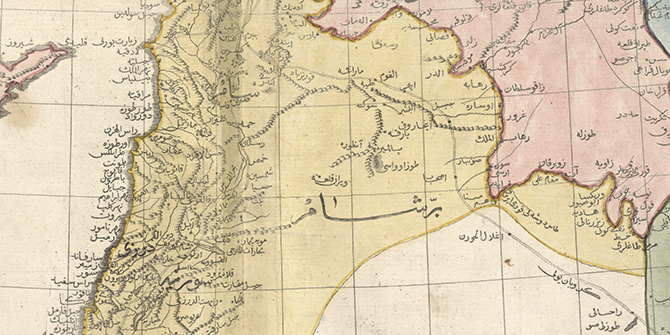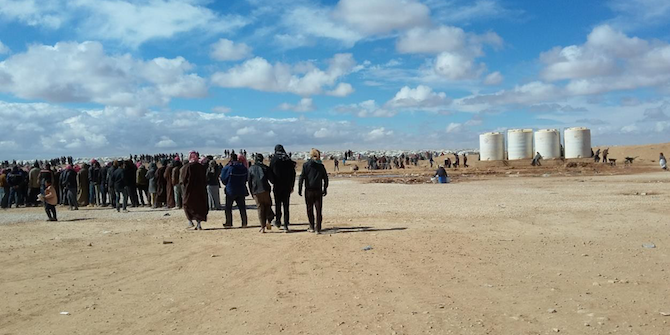by Enes Ayasli

Since March 2020, insurgent groups have begun to taken measures to prevent the spread of the COVID-19 virus among their members. ISIS ordered its followers to ‘stay away’ from Europe while claiming to have suspended suicide attacks for a certain period. Conflicting parties in Libya and in Yemen also agreed to temporary ceasefires to allow for humanitarian aid to be delivered. Meanwhile, conflict data shows a moderate decrease in the number of fatalities in the Middle East since late February. However, in war-torn Syria, the conflict rages on with no end in sight.
Global outbreaks and armed conflicts
Global health challenges can create an unusual course of events in conflict zones. In the past, countries have managed to declare ceasefires for vaccination campaigns, as happened in Sudan, Somalia and Afghanistan. However, once the campaigns ended, so did the ceasefires. Still, the logic behind such decisions is important to understand to foresee the course of events in the Syrian Civil War.
Conflict zones require special attention in turbulent times. Access to, and monitoring of, the infected population relies on fragile ceasefire agreements between belligerents. Health infrastructures devastated by long-lasting armed conflicts further complicate the tasks of medical staff, who often must work without sterile environments. Furthermore, medical staff are likely to be targeted by insurgent groups, making it hard to decide whether to send personnel to the field.
However, it is also clear that the conflict can easily lead to an increase in the transmission of infectious diseases. Studies conclude that military mobilisation and recruitment are key vectors for the spread of disease. Today, the ability of insurgents to succeed depends partially on their ability to recruit soldiers to fight in Syria. For insurgencies who cultivate power with grassroots mobilisation from the local population, the spread of COVID-19 is thus a crucial threat. The fewer potential recruits rebels can draw from the population, the more their manpower and resources will dwindle.
Will the COVID-19 outbreak encourage peace?
Considering all these factors, there could now be an incentive for insurgent groups to revisit their strategies, given the logic of halting conflict temporarily, if not permanently. However, the COVID-19 outbreak has neither halted nor mitigated the conflict in Syria. Two Turkish soldiers were killed on 19 March in Idlib despite the ceasefire struck between Turkey and Russia. Turkey, Russia and Syria have each sent reinforcements to the region, where a government assault is still anticipated. Meanwhile, clashes between the former al-Qaeda affiliate Hayat Tahrir al-Sham and government forces continue to destabilise the region.
With countries deprioritising fighting against terrorism, and focusing upon national needs rather than international threats, further catastrophe in Syria could easily be fuelled by resurgent terrorism. Failure to control the outbreak could lead to the resurgence and re-empowerment of extremist groups. Insurgent groups might see an opportunity to strengthen their roots in vulnerable communities who will be most affected by the coronavirus.
ISIS, whose full ‘defeat’ was announced in 2017, has already killed more than 350 people since March 2020. On 10 April, they attacked the town of Al Sukhna in Homs province, killing more than 25 regime fighters. They also claimed responsibility for 11 separate attacks in Syria between 1–8 April. As several US-led anti-ISIS coalition troops have recently been redeployed to their countries of origin, with training activities halted amid the global pandemic, this loosening of military supervision may have created an opportunity for ISIS to reactivate itself and reclaim small-scale territories by carrying out hit-and-run operations. If they start to strengthen relative to their regional adversaries, they will be able to start reshaping the strategic landscape to their own benefit.
Presumably, they may also try exploiting the fears associated with the pandemic. Inciting fear has long been an ISIS strategy to decrease loyalty to the authorities. Referring to the pandemic as the will of God, ISIS’ rhetoric could help them mobilise followers in the so-called ‘pursuit of God’s vengeance’. The fact that more US citizens have died due to COVID-19 than the September 11 attacks has helped them legitimise this claim and further advocate that the US is no longer powerful enough to defend itself. Employing such an opportunistic strategy, the resurgence of ISIS is not unfeasible.
In the meantime, the deteriorating situations in prisons where ISIS detainees are held could conceivably spark more riots in the near future. By exploiting conditions in makeshift detention centres, ISIS could once again recruit its former fighters.
Failure to control the outbreak could also exacerbate the situation of internally displaced persons (IDPs) and refugees. The protracted conflict in Idlib has already created the largest displacement in the history of the Syrian Civil War. Considering there are almost 960,000 new IDPs since December 2019, the attendant risks are very high. Safe hygiene practices in al-Hol, al-Roj, and Atme refugee camps are only slightly more prevalent than in the prisons. In northern Aleppo and Idlib Governorates, more than 300,000 IDPs are currently living in makeshift tents. With the lack of medical equipment, food, water and sanitation, the pandemic has created an untenable situation. Should the conflict escalate, and the current lack of military surveillance gives ISIS the leverage needed to gain ground again, it is likely that the number of confirmed cases of COVID-19 inside camps will grow exponentially.
Overall, the global pandemic has done little to mitigate the conflict in Syria, but subsequent levels of conflict seem to be associated more with the resurgence of extremist groups. The world should be extremely cautious of the new and developing situation, which appears conducive to the resurgence of ISIS.






